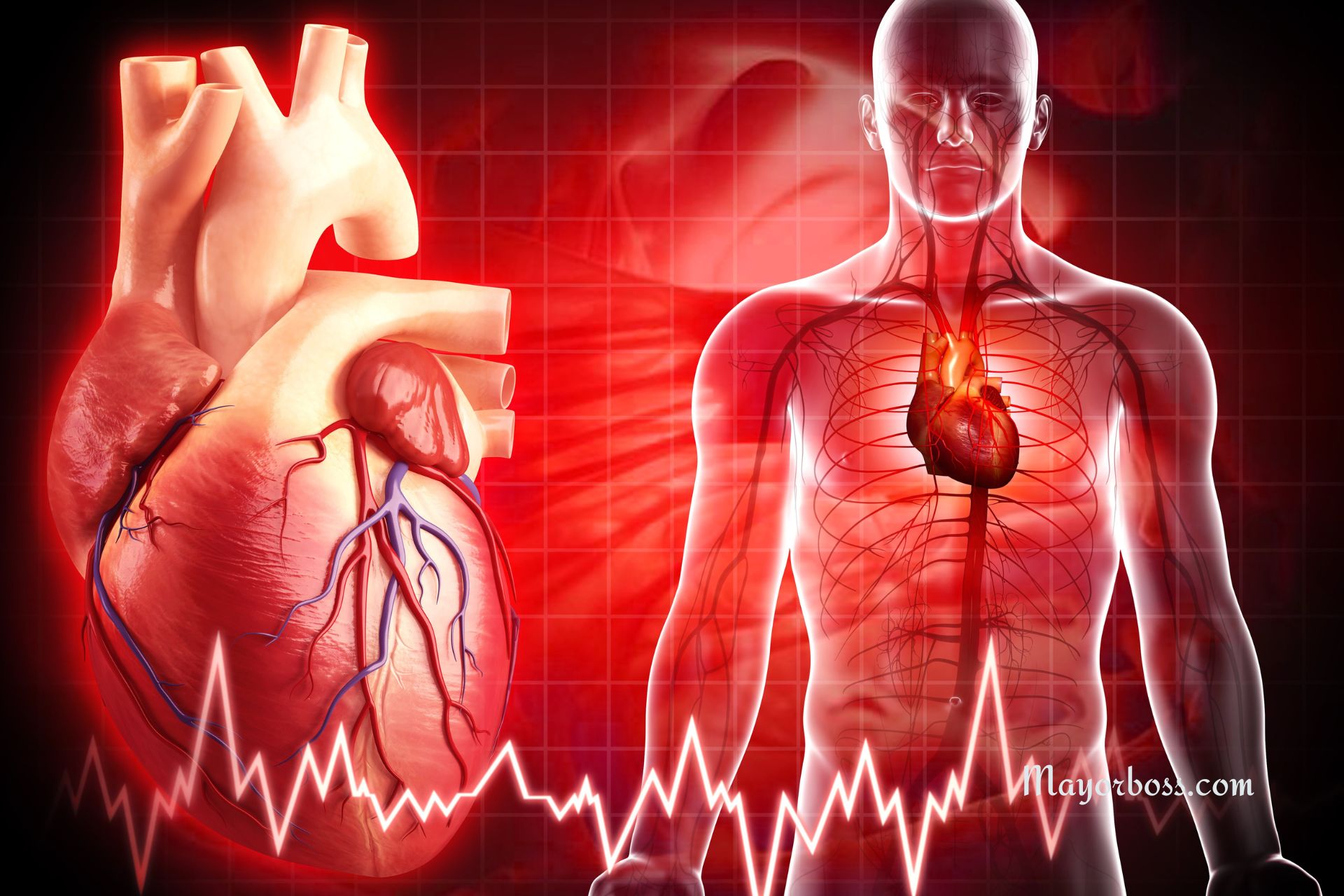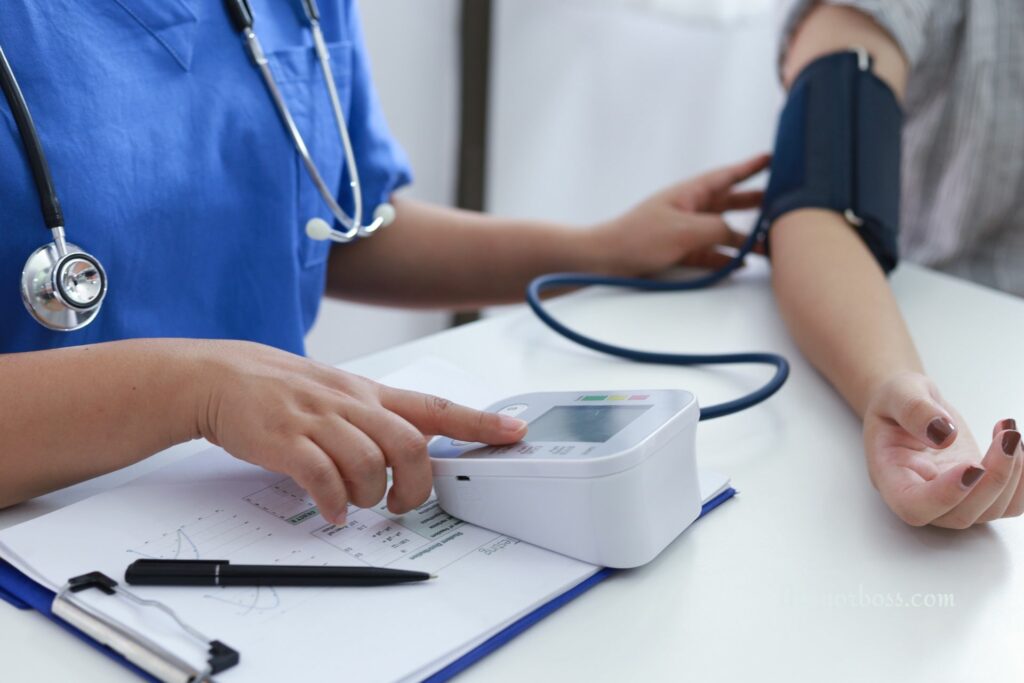Here’s Why You Should NOT Ignore High Blood Pressure
Let’s talk about something that might not be the most exciting topic, but it’s incredibly important: high blood pressure. You might be thinking, “Oh, that’s just something older people deal with, right?” But here’s the thing: high blood pressure doesn’t discriminate. It can sneak up on anyone, regardless of age, and ignoring it could lead to serious health issues. So, if you’ve been brushing off those readings at the doctor’s office, it’s time to pay attention. Here’s why.

High Blood Pressure Is More Than Just a Number
First off, let’s clear something up. High blood pressure, or hypertension as it’s medically known, isn’t just about having a slightly elevated number on a screen. It’s a sign that your heart and arteries are under strain, which can set off a chain reaction of health problems. The Mayo Clinic explains that consistently high blood pressure propels your heart to work harder to pump blood, which can potentially lead to heart disease, stroke, and even kidney damage.
The scary part? You might not even know you have it. High blood pressure is often called the “silent killer” because it usually has no symptoms. That’s why regular check-ups are so crucial. When your blood pressure is checked, it’s not just about one number. Doctors look at the systolic pressure (the top number) and the diastolic pressure (the bottom number) to get a full picture of how your heart is doing.
Ignoring High Blood Pressure Can Lead to Serious Health Problems
If you think ignoring high blood pressure is no big deal, think again. The American Heart Association explains that untreated high blood pressure can lead to a range of serious health problems, many of which are life-threatening. Here’s what you’re risking:
1. Heart Disease and Heart Attacks
When your blood pressure is high, it damages your arteries over time. The walls of your arteries can become thickened, which makes it harder for blood to flow. This can lead to a buildup of plaque, increasing your risk of a heart attack. According to the American Heart Association, about 7 out of 10 people who have their first heart attack also have high blood pressure.
2. Strokes
Strokes occur when the blood supply to your brain is interrupted or decreased, thereby depriving your brain of oxygen. High blood pressure is a leading cause of strokes because it can cause blood vessels in the brain to burst or become blocked. The National Institutes of Health explains that even a slight increase in blood pressure can immensely increase your risk of a stroke.
3. Kidney Damage
Your kidneys are generally responsible for filtering waste from your blood. High blood pressure can quietly damage the arteries around your kidneys, reducing their capacity to function properly. Over time, this can potentially lead to kidney disease or even kidney failure. The National Kidney Foundation notes that high blood pressure is the second leading cause of kidney failure in the United States.
Lifestyle Changes Can Keep High Blood Pressure in Check
The good news is that high blood pressure isn’t a death sentence. In fact, it’s one of the most manageable conditions if you take it seriously. Making some lifestyle changes can have a big impact on your blood pressure levels.
1. Eat a Healthy Diet
Diet plays a tremendous role in managing high blood pressure. Doctors say that eating a diet rich in whole grains, vegetables, low-fat dairy products, and fruits can lower your blood pressure by up to 11 mm Hg. Cutting back on sodium is also key. According to the American Heart Association, reducing your salt intake can lower your blood pressure significantly. That means skipping the extra dash of salt at dinner and avoiding processed foods that are often loaded with sodium.
2. Exercise
Regular physical activity is one of the most effective ways to lower your blood pressure. The Mayo Clinic suggests aiming for at least 150 minutes of moderate aerobic activity each week. This could be anything from brisk walking to swimming. Exercise not only helps your heart pump more efficiently, but it also helps reduce stress—a known contributor to high blood pressure.
3. Limit Alcohol and Quit Smoking
Both alcohol and smoking can raise your blood pressure, so cutting back on these can make a big difference. The National Library of Medicine explains that even small amounts of alcohol can raise your blood pressure, so it’s best to keep it in check. Quitting smoking has immediate benefits, and over time, your risk of heart disease drops dramatically.
4. Manage Stress
Stress can also affect your blood pressure. When you’re stressed, your body releases hormones that can raise your blood pressure. Doctors have noted that finding ways to manage stress, whether through meditation, listening to music, yoga, or simply taking time for yourself, can help keep your blood pressure in check.
Medications Are Sometimes Necessary
For some people, lifestyle changes alone aren’t enough to manage high blood pressure. In these cases, medications may be necessary. If your doctor prescribes medication, it’s important to take it as directed. Skipping doses or stopping medication without consulting your doctor can lead to uncontrolled blood pressure, which puts you at greater risk for the complications we’ve talked about.
There are several types of medications used to treat high blood pressure, and your doctor will work with you to find the most suitable one for your situation. According to information gathered from a study, these medications work in different ways—some help your body get rid of excess sodium, while others help your heart pump more efficiently. The key is consistency. Even if you feel fine, taking your medication as prescribed is crucial for keeping your blood pressure under control.
Don’t Wait for Symptoms to Take Action

One of the most dangerous things about high blood pressure is that it often has no symptoms. You could feel perfectly fine and still have dangerously high blood pressure. That’s why it’s so important to get your blood pressure checked regularly, especially if you’re over the age of 40 or have a family history of hypertension.
According to the American Heart Association, you should have your blood pressure checked at least once every two years if it’s within the normal range. If it’s elevated, your doctor may recommend more frequent checks. And if you have high blood pressure, regular monitoring is essential to ensure that it’s under control.
